nuclearmentality said:
mind going a bit more in-depth on what you mean by this?
Order of the Stick: Blood Runs in the Family has basically the same ending as Homestuck: It’s a highly metafictional narrative where the characters are being forced along the path of a story by the villain, and the resolution is them rejecting the story and leaving to do other things.
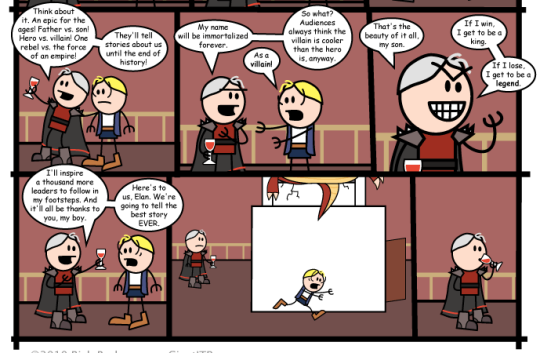
The main difference between them is that in Order of the Stick it’s explicit. Elan’s dad actively wants a great story to happen, even if it means he’s defeated in the end. Caliborn “controls the narrative” in order to set up time loops that predestine his eventual victory in a manner that serves as a metaphor for “canon” but is within the logic of Homestuck a time travel paradox. This is more convoluted, but what’s most important here is that Caliborn’s goal isn’t to be a villain in a story, it’s to kill everyone and live forever as a god.
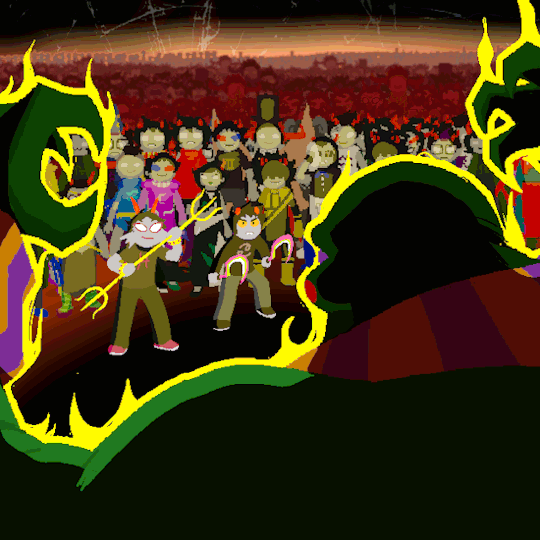
Thus, the audience sees “defeat Lord English” as the goal of Homestuck, not “escape the story”. Homestuck does not, and indeed can not thanks to the metaphor, provide any narrative weight or momentum towards “the characters escape the story” as a satisfying ending. There’s quite a bit of existential angst about what it means to live in a world where there’s one official pre-approved future and everything else was doomed to failure, enough that an ending of “we destroyed the concept of an alpha timeline all timelines are valid we’re free” would have been a perfectly satisfying ending, had that been what happened.
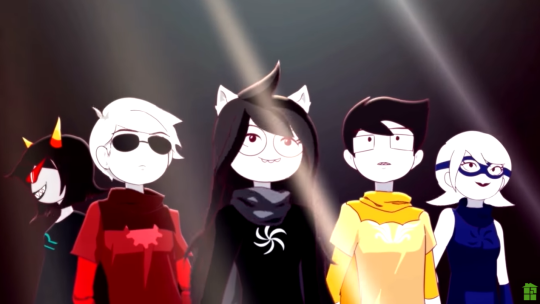
Instead the characters go to Earth C and the story just kind of stops. Can Lord English not be Already Here in Earth C? Apparently not, for some reason. Why? He’s defeated by some other character in some off-screen manner that has no thematic relevance for this “canon” idea and is literally just kicking him into a hole. The literal goals of the characters (escape to a new world) and the metaphorical goal of the characters (escape “canon”) aren’t connected in a logical way Accomplishing one shouldn’t have anything to do with the other, so when they suddenly get treated as interchangable it’s confusing.
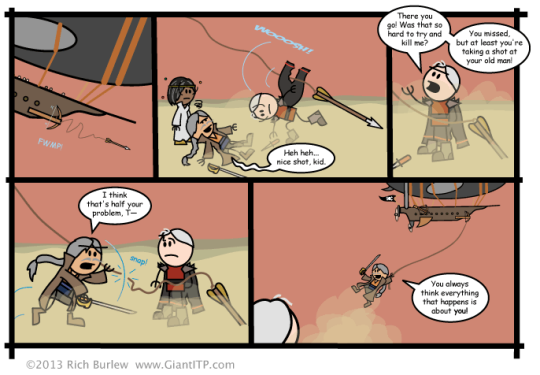
By comparison, the Tarkin arc DOES have a connection between “Defeat the bad guy” and “escape the confines of a story”. Defeating Tarquin traditionally means he wins, so the heroes need to escape the story, and he needs to stop them. Because he wants to stop them. Caliborn doesn’t actually have any reason to care if the kids make it to Earth C, and he never directly intercedes to stop them. He does his own thing and they do their own thing. At no point does Caliborn, like, tell any of the characters he’s got this time loop thing going, meaning that none of the kids and trolls even know he’s doing anything that affects them.
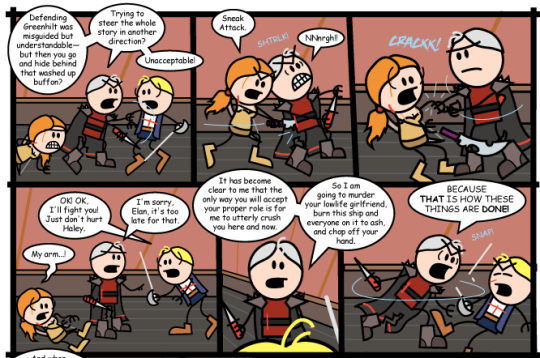
Order of the Stick has the characters actually be at odds over the theme. This allows Order of the Stick to do something Homestuck couldn’t, which is have it’s cake and eat it too. The audience wants to see a final confrontation, and we get one. There’s a big long dramatic battle where all the characters get to do cool things. But since killing Tarquin is giving him what he wants…
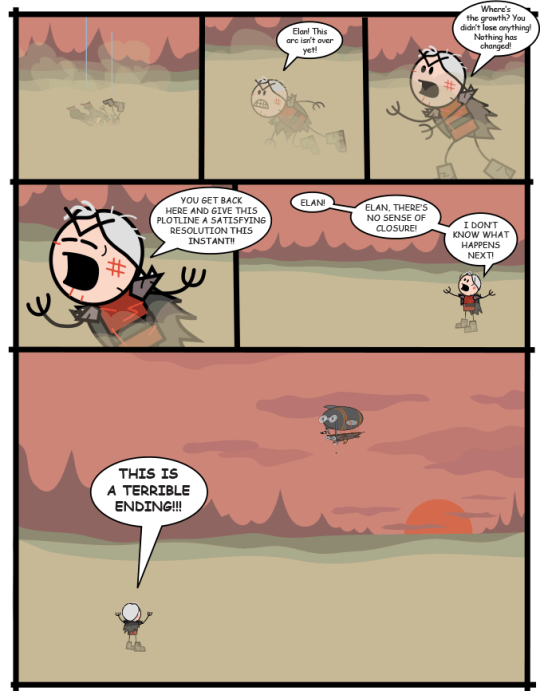
They don’t. Elan has a character growth moment where he ignores his meta “good guy” role and coldly lets Tarquin fall off the airship, knowing Tarquin has the HP to survive the fall. Tarquin is left sputtering and furious at his lack of closure, giving us the satisfaction of seeing him defeated while not having him be defeated in the way he wanted. Even though Tarquin still has his empire, he is so thoroughly owned that we’re happy. The story has concluded in an unexpected but satisfying way that makes you think about stories as you realize that all of Tarquin’s complaints here are baseless. Elan did lose something important, he changed significantly as a character, the plotline has a satisfying resolution, and the ending is great.
And I think the new writers of Homestuck understand this to some extent.

Because they’re doing it Rich Burlew’s way now. New Homestuck has a villain who accepts being a villain and is actively trying to make sure that the heroes grow and learn and kill him in the end, exactly the same as Tarquin. He’s probably not going to get that villainous death he’s looking forward to, and it’ll probably be a lot more satisfying of an ending than Old Homestuck got because the story conflict actually has something to do with the metaphor this time.
